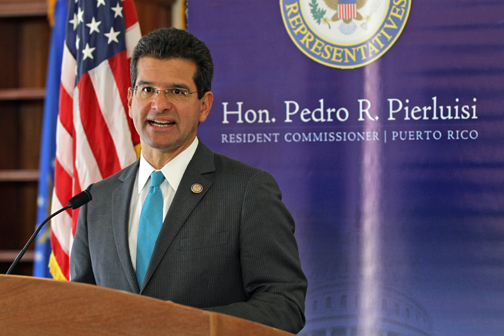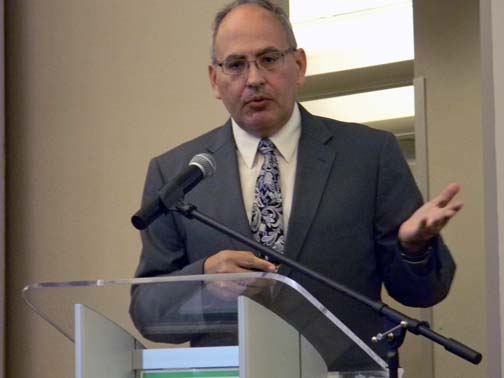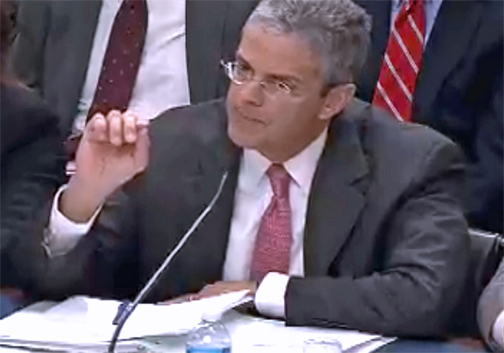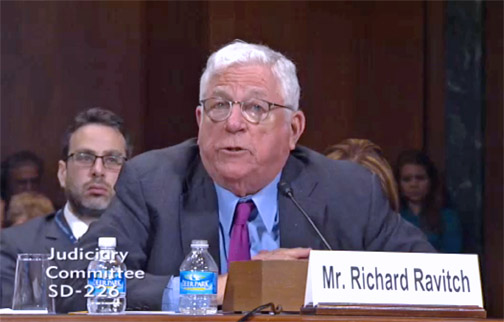Fitch: Ch. 9 extension would be a positive for Puerto Rico

The extension of Chapter 9 provisions governing the adjustment of municipal debt in Puerto Rico would be a positive and important development for Puerto Rico and holders of debt of its public utilities and public instrumentalities, Fitch Ratings said Wednesday.
Late last month, Resident Commissioner Pedro Pierluisi introduced a proposed amendment to the U.S. Bankruptcy Code, known as the “Puerto Rico Chapter 9 Uniformity Act of 2014,” which would amend the code and extend to Puerto Rico the power to use Chapter 9 proceedings in federal bankruptcy court to adjust debts of its municipalities and public instrumentalities. Corporations in Puerto Rico have access to bankruptcy proceedings under Chapters 7 and 11, but not under Chapter 9, as afforded to other states.
“From a bankruptcy standpoint, the amendment would place Puerto Rico on an equal footing with the 50 States, who can currently use Chapter 9 to achieve debt adjustment for their municipalities. The amendment, which will be considered by the House judiciary committee, is supported by the National Bankruptcy Conference,” said Fitch, noting the Conference recommends that the amendment be modified to include retroactive application.
“The combination of fiscal challenge, weak economic performance and limited market access has led the Commonwealth government to a point where increasingly difficult choices are required,” the agency said Wednesday.
It noted the enactment of the Puerto Rico Public Corporation Debt Enforcement and Recovery Act on June 26, calling it “an effort to fill the void resulting from the absence of a federal bankruptcy alternative.”
“The Commonwealth has attempted to forge its own framework for orderly debt restructuring applicable to its public corporations, including the Puerto Rico Electric Power Authority and Puerto Rico Aqueduct and Sewer Authority,” Fitch said. “While the Recovery Act is intended to restore solvency over the long-term, it entails debt restructuring that would trigger suspension of debt payments and preclude the timely payment of principal and interest during the pendency of the proceedings.”
The Recovery Act has provisions that mimic to a degree those in Chapter 9, but are also different in ways. Extending Chapter 9 would likely not ease PREPA’s immediate financial stress, Fitch said.
“I am encouraged that Fitch has expressed its view that enactment by the U.S. Congress of H.R. 5305, the Puerto Rico Chapter 9 Uniformity Act of 2014, ‘would be a positive and important development for Puerto Rico and holders of debt of its public utilities and public instrumentalities,’ including holders of debt issued by the Puerto Rico Sales Tax Financing Corporation, known as COFINA,” Pierluisi said.
“As Fitch observes, this bill ‘would place Puerto Rico on an equal footing with the 50 States, who can currently use Chapter 9 for their municipalities,’ as the U.S. Bankruptcy Code defines that term,” he said.
“I am pleased that there appears to be broad backing for the notion that extending Chapter 9 to Puerto Rico is a fair and sensible way to proceed. My legislation would simply empower the Puerto Rico government to authorize its government-owned corporations to utilize the tried-and-true Chapter 9 procedure if it becomes necessary, under the expert supervision of an impartial federal bankruptcy judge, based on legal precedent established in Chapter 9 proceedings that have taken place throughout the United States,” Pierluisi further noted.
“It stands to reason that the Chapter 9 process would be more predictable, orderly and swift than any alternative process, and is the procedure most likely to result in an outcome that is fair and equitable to all stakeholders,” he said.











